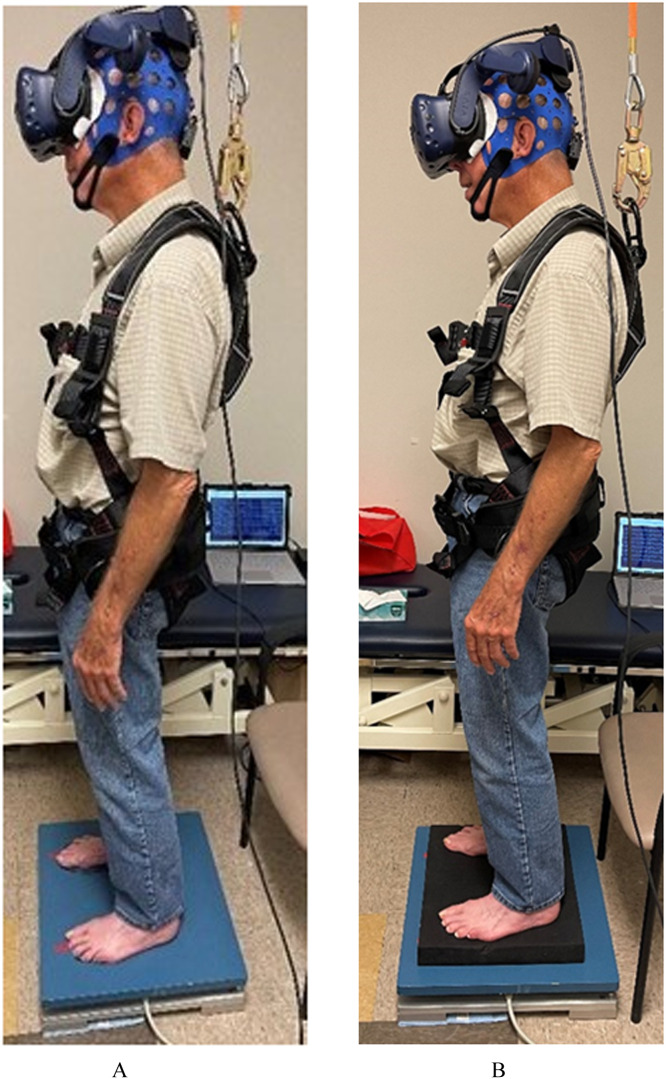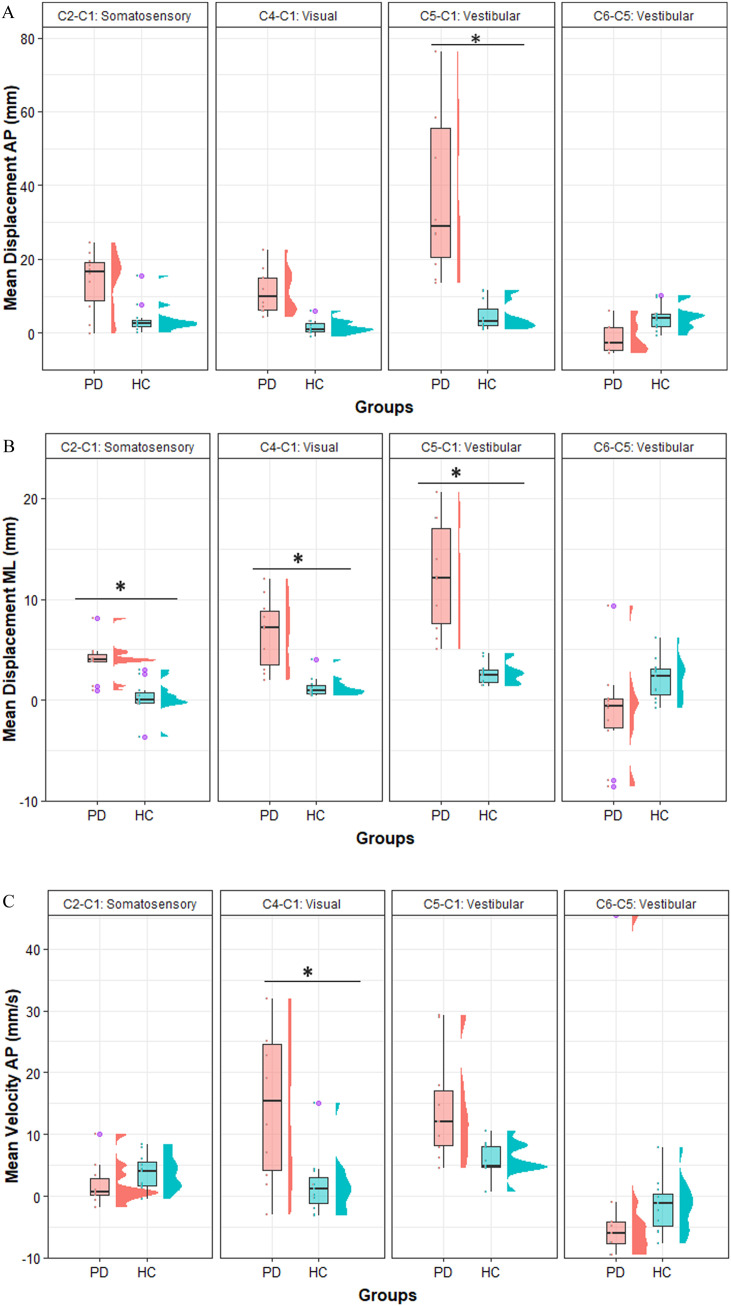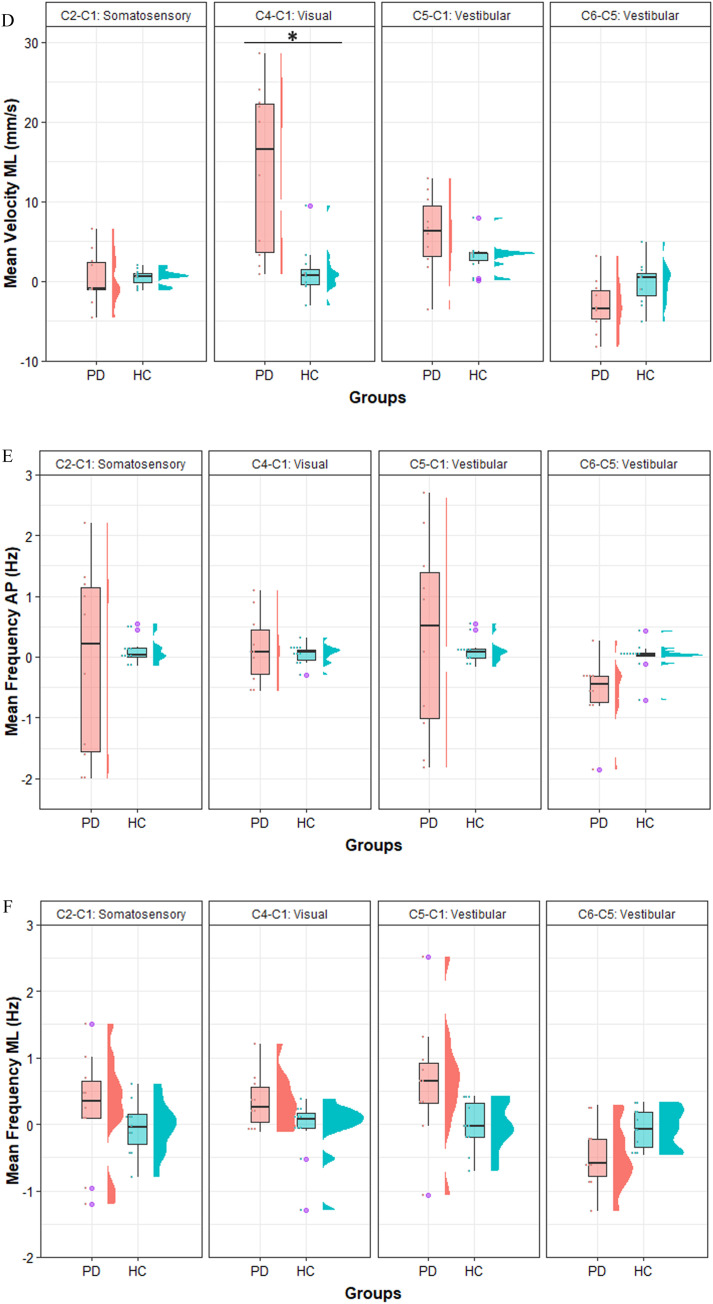The Effect of Sensory Reweighting on Postural Control and Cortical Activity in Parkinson's Disease: A Pilot Study
IF 2
Q2 REHABILITATION
Archives of rehabilitation research and clinical translation
Pub Date : 2024-12-01
DOI:10.1016/j.arrct.2024.100368
引用次数: 0
Abstract
Objective
To investigate the effects of sensory reweighting on postural control and cortical activity in individuals with Parkinson's disease (PD) compared to age-matched controls using a virtual reality sensory organization test (VR-SOT).
Design
Cross-sectional pilot study.
Setting
University research laboratory.
Participants
Ten participants with idiopathic Parkinson's disease and 11 age- and sex-matched control participants without neurologic disorders.
Interventions
Not applicable.
Main Outcome Measures
Changes in center of pressure (COP) and electroencephalography (EEG) activity (ie, power) in the alpha band and the theta/beta ratio recorded during the VR-SOT were the main outcome variables.
Results
PD participants exhibited greater COP displacement, particularly in the mediolateral direction across sensory conditions. They also showed increased alpha power when relying on visual inputs and increased theta/beta ratio power when depending on somatosensory inputs.
Conclusion
PD affects sensory reweighting mechanisms involved in postural control, as evidenced by greater COP displacement and altered cortical activity. These findings emphasize the potential of EEG and VR-SOT in understanding and monitoring postural control impairments in PD.



感觉重加权对帕金森病患者体位控制和皮层活动的影响:一项初步研究。
目的:通过虚拟现实感觉组织测试(VR-SOT),研究感觉重加权对帕金森病(PD)患者体位控制和皮层活动的影响,并与年龄匹配的对照组进行比较。设计:横断面试验研究。环境:大学研究实验室。参与者:10名患有特发性帕金森病的参与者和11名年龄和性别匹配的无神经系统疾病的对照组参与者。干预措施:不适用。主要结局指标:在VR-SOT期间记录的alpha波段的压力中心(COP)和脑电图(EEG)活动(即功率)的变化和theta/beta比是主要结局变量。结果:PD参与者表现出更大的COP位移,特别是在感觉条件下的中外侧方向。当依赖于视觉输入时,他们也表现出增加的α功率,而当依赖于体感输入时,他们也表现出增加的θ / β比值功率。结论:PD影响与姿势控制有关的感觉重加权机制,这可以通过更大的COP位移和皮层活动改变来证明。这些发现强调了EEG和VR-SOT在了解和监测PD患者姿势控制障碍方面的潜力。
本文章由计算机程序翻译,如有差异,请以英文原文为准。
求助全文
约1分钟内获得全文
求助全文
来源期刊

Archives of rehabilitation research and clinical translation
Medicine and Dentistry (General)
CiteScore
3.00
自引率
0.00%
发文量
0
审稿时长
8 weeks
 求助内容:
求助内容: 应助结果提醒方式:
应助结果提醒方式:


